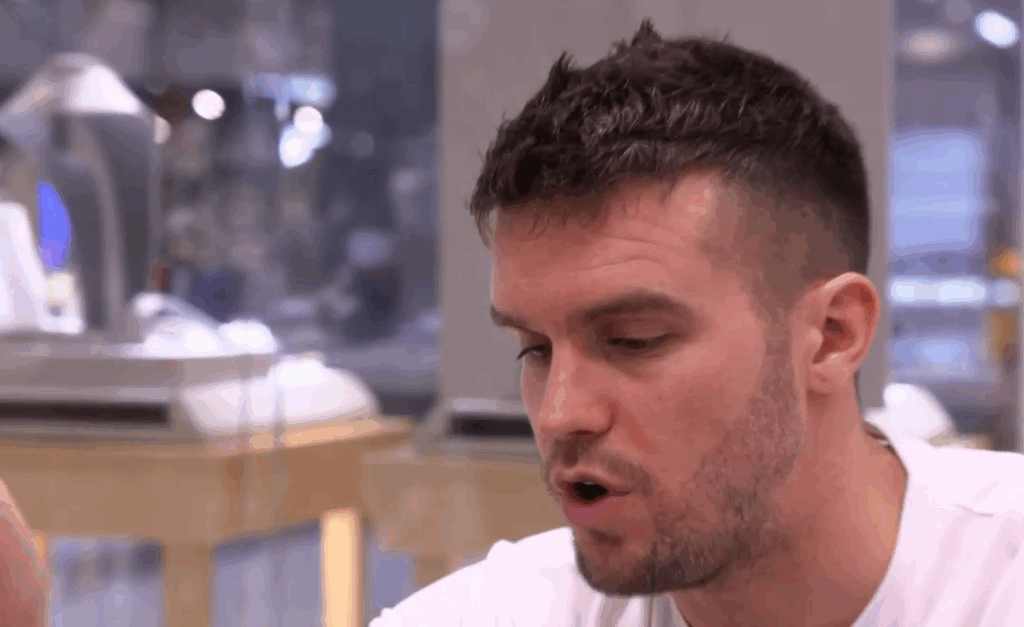Although Gaz Beadle and Emma McVey’s split was portrayed as amicable, the public’s fascination with it tells us a lot about how we assign meaning to famous couples. Their story, which was remarkably similar to other well-known reality romances, seemed to be based on change: Emma taking center stage as the stable counterpart, and Gaz shedding his wild Geordie Shore persona to become a family man.
Over the past few days, supporters have reexamined the hints that this result might occur. Social media posts alluded to difficulties, with Emma mentioning the burdensome mental workload and Gaz stepping back from public discourse. Their breakup, which was casually disclosed during an Instagram Q&A, was similar to the subtle declarations of his previous relationships—effective in their delivery but emotionally aloof.
The emphasis on positivity was particularly noteworthy. They both made it clear that there was only friendship and a shared resolve to bring Chester and Primrose up in stability, not resentment. This framing worked remarkably well to quell rumors of a scandal. By working together on their messaging, they created a story of maturity instead of drama, indicating a very noticeable departure from the typically explosive fallout that occurs when celebrities split up.
Gaz Beadle & Emma McVey – Relationship Timeline & Personal Details
| Name | Gaz Beadle |
|---|---|
| Born | March 22, 1988, Hexham, England |
| Profession | Reality TV Star, Entrepreneur |
| Notable Work | MTV’s Geordie Shore |
| Relationship | Began dating Emma McVey in 2016 |
| Engagement | 2019 |
| Marriage | July 2021 |
| Children | Son Chester (born 2017), Daughter Primrose (born 2019) |
| Split | October 2023, publicly announced via Instagram |
| Focus Post-Split | Co-parenting and personal happiness |
| Source | The Sun |

Emma later acknowledged that she felt caught off guard, indicating that her private life was more turbulent than her public persona permitted. In line with women like Adele and Gwyneth Paltrow, who reframed their divorces as liberating rather than tragic, she disclosed that she was happier after the split. Fans who view personal empowerment as especially advantageous, even when it stems from traumatic endings, will find great resonance in this story of newly discovered strength.
Gaz took a different stance, portraying the split as long-term and inevitable. His focus on co-parenting is in line with the growing trend of celebrity families modeling hybrid arrangements in which new and former partners live together peacefully. These kinds of incredibly adaptable family structures are now widely praised for showing how resilience can thrive following separation.
But their supporters discussed more profound topics. Concerns regarding financial dynamics were brought up in Reddit discussions, where Emma suggested that she paid her share even though Gaz had more money. While some claimed it was independence, others labeled it a warning sign. Even though they were hypothetical, these discussions demonstrated how their relationship served as a prism for more general discussions about equality, money, and emotional labor in contemporary relationships.
Their capacity to maintain friendship in the face of divorce is consistent with a societal trend toward rebranding breakups. The model of celebrity separation has been significantly enhanced by Gaz and Emma, much like Gwyneth Paltrow’s “conscious uncoupling.” They have shown that family unity can endure even when romantic ties break down, as opposed to scorched-earth animosity.
Emma’s story was particularly relatable because she was candid about the difficulties of being a single mother. She revealed that although life felt overwhelming, she was at her happiest point in years. Such candor was very effective in destroying preconceived notions of post-breakup sadness and substituting them with a story of development and resiliency. Her recuperation from heart surgery, which had previously placed additional strain on the couple’s relationship, was one of the personal hardships that fans praised her for being incredibly resilient.
Gaz, meanwhile, has leaned into a stable narrative, juggling his own health issues with a new romantic partner. In contrast to the animosity frequently observed in similar breakups, the couple’s ability to openly acknowledge each other’s advancements is especially creative. They demonstrate that even well-publicized splits can be handled with dignity by insisting on harmony.
Their breakup shows how reality stars deal with being scrutinized as adults from a cultural perspective. The way that celebrities like Spencer Matthews and Kristin Cavallari changed who they were outside of their television personas is reflected in Gaz’s journey from Geordie Shore party king to father. These storylines demonstrate how reality TV, which was once written off as superficial, now creates people whose lives mirror more general discussions in society about resilience, parenting, and identity.
In the end, there is no one correct response to the question, “Why did Gaz and Emma break up?” Like many marriages, theirs involved a complicated interaction between external pressures, personal development, and shifting priorities. But what is evident is how they handled their demise—with dignity, cooperation, and a resolve to protect their kids from conflict. The true lesson might lie in that decision, which is rich in maturity but drastically less dramatic.
